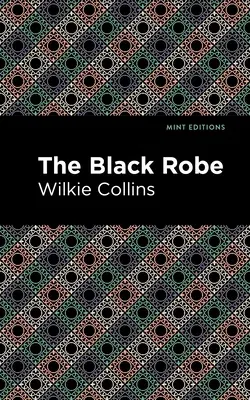The Black Robe (1881) is a novel by Wilkie Collins. Written toward the
end of Collins' career, The Black Robe shows brilliant flashes of the
author's trademark sense of mystery and psychological unease, which made
him a household name around the world. Recognized as an important
Victorian novelist and pioneer of detective fiction, Wilkie Collins was
a writer with a gift for thoughtful entertainment, stories written for a
popular audience that continue to resonate with scholars and readers
today. While visiting northern France to attend the funeral of his aunt,
Lewis Romayne, while playing cards, accuses a local gambler of cheating.
Offended by the young Englishman, the man challenges Romayne to a duel,
but sends his son in his place. Against the odds, Romayne--unaccustomed
to fighting--manages to kill the boy, saving his own life. The screams
of his younger brother, however, never leave Romayne, not as he returns
to Yorkshire a changed man, not for the rest of his life. Back home, he
attempts to regain a sense of normalcy, caring for Vange Abbey, the
family estate, and making social trips to London. In the city, he meets
and falls in love with the beautiful Stella Eyrecourt, whom he marries.
Meanwhile, a vindictive priest looking to gain control of the Abbey
hatches a plan to convert Romayne to Catholicism and trick him into
signing the property over in his will. Wracked with guilt and trusting
to a fault, Romayne walks right into his trap. Beyond its sensational
plot, The Black Robe is a masterpiece of mystery and social critique
for seasoned readers of Victorian fiction and newcomers alike. With a
beautifully designed cover and professionally typeset manuscript, this
edition of Wilkie Collins' The Black Robe is a classic work of English
literature reimagined for modern readers.


